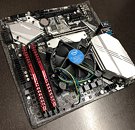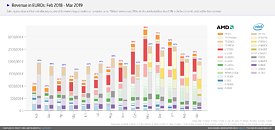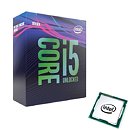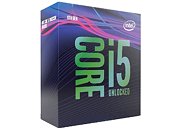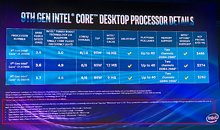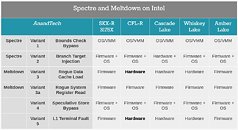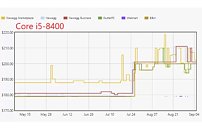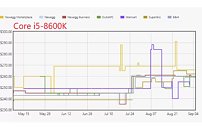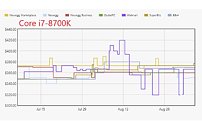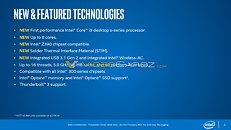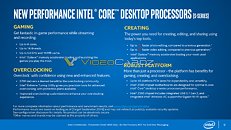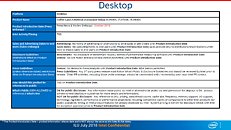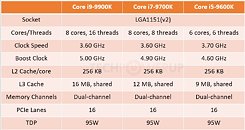
Intel Marketing Claims i5-9600KF Better than 3800X, i3-9350KF Better than 3600X
Intel marketing is at it again, making sweeping performance claims about its embattled 9th generation Core processors against AMD's 3rd generation Ryzen. In a recent press conference in China, the company was shown claiming that its mid-tier 6-core/6-thread Core i5-9600KF is a "better" processor than AMD's 8-core/16-thread Ryzen 7 3800X. This claim is hard to defend with gaming, when even the "slower" 3700X is seen performing within 1% of the i5-9600K (identical CPU specs to the i5-9600KF) at gaming, and 22 percent faster at CPU tests, beating the i9-9900K in quite a few multi-threaded tests.
The marketing slide makes four key claims: 1. that Intel processors are faster in "real-world" use-cases (gaming, home/office, light content-creation), ; 2. that with boost-frequencies reaching 4.60 GHz, the higher IPC of these chips benefit gaming; 3. that the K-series chips easily overclock to 5.00 GHz yielding even more performance; and 4. that Intel processors have "smooth and stable drivers" compared to AMD. As if that wasn't bad enough, the slide claims that the 4-core/4-thread Core i3-9350KF is "better" than the 6-core/12-thread Ryzen 5 3600X, and the entry-level i3-9100F being better than the 6-core/6-thread Ryzen 5 3500. This incident closely follows its September gaffe that sought to sourgrape AMD's HEDT creator performance leadership by discrediting its lead in certain applications by claiming they don't reflect "real world usage." Making Intel's test relevance claims comically wrong was the fact that it used app usage data gathered exclusively from notebooks.
The marketing slide makes four key claims: 1. that Intel processors are faster in "real-world" use-cases (gaming, home/office, light content-creation), ; 2. that with boost-frequencies reaching 4.60 GHz, the higher IPC of these chips benefit gaming; 3. that the K-series chips easily overclock to 5.00 GHz yielding even more performance; and 4. that Intel processors have "smooth and stable drivers" compared to AMD. As if that wasn't bad enough, the slide claims that the 4-core/4-thread Core i3-9350KF is "better" than the 6-core/12-thread Ryzen 5 3600X, and the entry-level i3-9100F being better than the 6-core/6-thread Ryzen 5 3500. This incident closely follows its September gaffe that sought to sourgrape AMD's HEDT creator performance leadership by discrediting its lead in certain applications by claiming they don't reflect "real world usage." Making Intel's test relevance claims comically wrong was the fact that it used app usage data gathered exclusively from notebooks.





